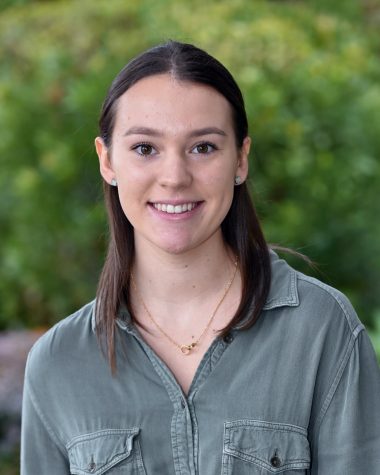Uncharted Waters: Faculty and Student Reactions to the 2020 AP Exam Changes
April 30, 2020
As the Coronavirus continues to take a toll on students and faculty all across the world, the College Board had no choice but to alter this year’s AP exams. Each exam will be limited in both time and material, which has forced teachers to adapt accordingly and students to experience some anxiety during these unprecedented times.
Since 1954, the College Board has been administering Advanced Placement exams within schools across the United States, as well as in many other countries throughout the world. These cumulative tests not only measure students’ understanding of the material in their AP classes each year, but also carry weight in students’ futures: students can receive college credit by achieving top scores of either 4 or 5, possibly exempting them from introductory courses during their freshman year of college. These proctored exams occur every year in May and last from two to three hours.
However, with the Coronavirus pandemic and high schools being shut down all across the world, the College Board has been forced to abandon protocol and alter the format and timing of the 2020 AP exams. This change is concerning to some St. Luke’s faculty and has increased some St. Luke’s students’ anxiety around this year’s tests.
With most high schools making the decision to stay closed for the remainder of the school year, the College Board has announced that 2020 AP exams will be taken online at home. On April 3, the organization announced that exams can be taken on any mobile device, such as a phone, iPad, or computer, and will be 45 minutes long instead of three hours. Additionally, all exams will be free response, rather than the usual combination of both multiple choice and free response.
When the College Board released this news, students and teachers worried about the possibility of rampant cheating. However, the College Board communicated that all AP exams will be open-book and open-note to discourage cheating. Additionally, the College Board has stated that the online software used for this year’s exams is designed to detect any form of plagiarism.
Upon hearing about these changes, AP U.S. History teacher Mr. Murphy expressed an optimistic response.
“From a time standpoint it is easier; there is less fatigue involved,” Murphy reflected. “I hope there will be no more anxiety because now it is dependent upon one answer rather than multiple answers. I think if you are prepared, which St. Luke’s students are, I don’t think there will be a big difference seen in the ultimate scores.”
For years, St. Luke’s students have scored well, and Murphy does not expect these changes to have a negative effect on the students’ performance on AP exams, given their ability to “adapt.”
“From a St. Luke’s perspective, I know that we have done a very good job in the past with preparing our students so any changes would be well-doable. I think we have the ability to adjust and the ability to adapt based on our faculty, and especially based on the quality of our student body,” Murphy shared.
AP Chemistry teacher Mrs. Clavelli shared a similar point of view and communicated that it was necessary to change the format of the exam, given the current situation we are living in. While Clavelli is grateful that the College Board has altered the amount of curriculum that will be on the exams this year due to current circumstances, she expressed some concern with the new timing of the exams.
“My feeling is that they should have come up with a happy medium, somewhere between that 45 minutes and three hours. I think that 45 minutes [and] just having two questions is not really enough time to test how much the students have learned over the course of the year,” Clavelli commented.
As a science teacher, Clavelli expressed some concerns with the new format. She noted that the College Board has had to adjust the format of the science and math exams significantly compared to the English and history exams, which will put some students at a disadvantage. For instance, the English and history exams will keep the existing format, but will only have one free response prompt rather than multiple. Science and math, on the other hand, will include two free response questions; one 25 minutes long and the other 15 minutes, which will be submitted one at a time.
“Based on what the College Board has said, the history and English exams are going to have the same questions they were going to have regardless, just less of them. I think they really had to alter the science and math because of the format of Part Two,” Clavelli shared.
While Clavelli is trying to keep her classes as consistent as she can in preparation for this year’s AP exam, she worried that the sudden changes could create extra stress for her students.
“I feel bad for the students who have prepared for a certain type of exam all year long and now they are being thrown a curveball,” Clavelli shared. “I hope that the College Board takes that into consideration as they are grading. We are all under different stresses that we have never experienced before, and this is not what they have expected all year.”
Students stated similar concerns regarding the exam’s shortened time and limited material. Many St. Luke’s students are worried that it will be harder to achieve a score of either a 4 or a 5 because there will be less room for error. Moreover, they worried that the shorter format would not appropriately represent their expertise in the subject.
“I don’t feel like this test will adequately represent anything because, in 45 minutes, there is just no way it can embody everything you’ve learned in one year,” Kayleigh Bowler stated.
In addition to concerns about the tests’ new formats, students worry that it will be more difficult to focus on the exam at home.
“I feel like when I’m in a testing environment, I feel more focused and prepared, and when I take an exam at home, I sometimes don’t do as well because I don’t feel as focused,” Zach Amendola ‘21 shared.
Students expressed their concerns with standardized tests not being taken in a proctored environment because of the weight they carry towards college.
Looking forward, many students, particularly high school juniors, are concerned about the effect that this year’s AP exams will have on the college admissions process. Amendola noted that not knowing how colleges will treat this year’s AP exams is a little “unnerving.”
Despite this uncertainty, Cate Mathews ‘21 acknowledged that St. Luke’s students are fortunate to have online access to teachers and classmates during the exam preparation process.
“I think we at St. Luke’s are in a lucky position to still be having school, still getting face-to-face time with teachers, and still getting to ask questions,” Mathews reflected. “I think a lot of people around the country do not necessarily have that. As much as an AP test is stressful, it’s not the end of the world.”
While the College Board had no other choice than to alter this year’s AP exams, they have strived to make this unexpected situation less stressful for both educators and students across the country. Every week, AP teachers from all across the United States teach and post lessons on YouTube to help students prepare for their exams. The College Board has also posted additional practice problems on its website to ensure that every student is equipped with the resources they need to succeed on this year’s exams.
In the end, students realize that while AP exams are important, it is crucial to keep a healthy perspective in these trying times.
“It’s important to keep all of these concerns and stresses in perspective because as much as I’m worried about my own AP scores, I think the whole country and the whole world is dealing with not only the college process, school uncertainty, and all these other things, but we are dealing with a lot of issues all at once. So as much as it’s stressful for us, everyone is going to be understanding of this situation,” Mathews reflected.




